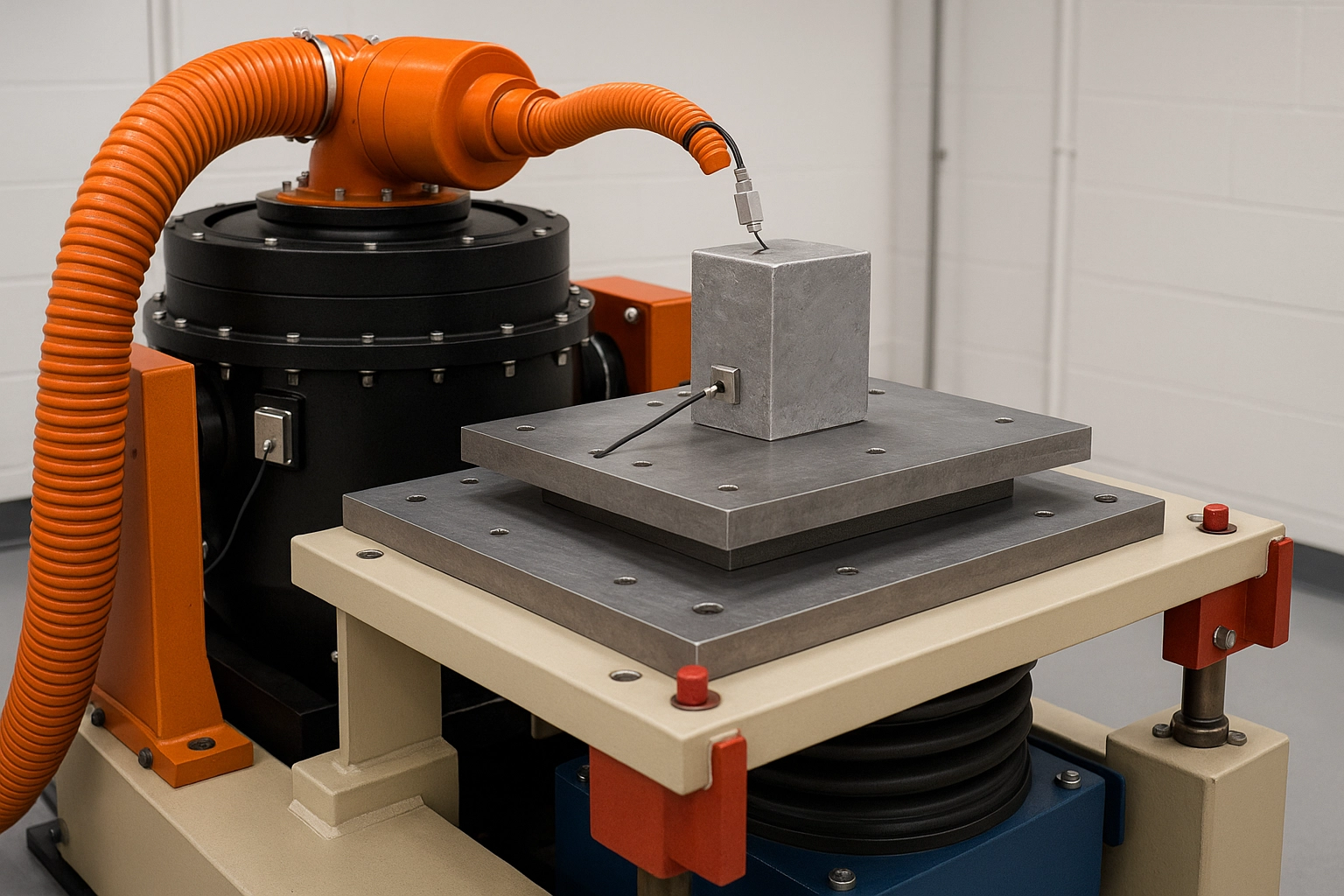GM 9125 Shock Test for Automotive Engine Control Units
The GM 9125 shock test is a critical procedure designed to ensure that automotive engine control units (ECUs) can withstand the harsh environments they will encounter during operation. This test evaluates the ability of ECUs to maintain functionality and integrity under conditions of mechanical shock, which are typical in automotive applications. The standard is governed by GM's internal specifications and is based on industry best practices for durability testing.
The GM 9125 test involves exposing the ECU to controlled mechanical shocks that simulate real-world conditions such as road bumps, potholes, or sudden stops. This ensures that the ECU can continue to perform its functions accurately even after being subjected to these stresses. The test is particularly important for automotive manufacturers and suppliers who need to ensure their products meet stringent quality and safety standards.
The process typically involves several steps: first, the ECU is mounted onto a vibration test rig designed specifically for this purpose. Then, it is subjected to controlled shock pulses that are calibrated to replicate real-world conditions. The duration and intensity of these shocks can be adjusted based on the specific requirements of the manufacturer or regulatory body.
The equipment used in GM 9125 testing includes advanced vibration and shock test rigs capable of generating precise shock waves. These devices allow for the accurate simulation of various shock environments, ensuring that the ECUs are tested under realistic conditions. After each exposure to mechanical shocks, the ECU is checked for any signs of damage or performance degradation.
The acceptance criteria for GM 9125 testing are stringent and are designed to ensure high reliability and durability of automotive ECUs. The test aims to confirm that the ECU remains functional after experiencing specified levels of shock. Compliance with these standards is crucial for manufacturers aiming to meet global automotive quality benchmarks.
One of the key aspects of GM 9125 testing is its ability to identify potential weaknesses in the design and manufacturing process of ECUs. By simulating real-world conditions, this test helps manufacturers pinpoint areas where improvements can be made. This not only enhances the reliability of the product but also contributes to safer and more efficient automotive systems.
The use of GM 9125 testing is particularly beneficial for R&D engineers working on new vehicle models or advanced engine control technologies. It allows them to refine designs before mass production, ensuring that all components are capable of withstanding the rigors of daily driving conditions. For quality managers and compliance officers, this test provides a reliable method for validating product compliance with industry standards.
Manufacturers who comply with GM 9125 testing standards can benefit from enhanced brand reputation due to increased customer trust in the reliability of their products. Additionally, meeting these stringent tests increases the likelihood of international acceptance and market expansion opportunities.
Customer Impact and Satisfaction
- Ensures high reliability and durability of automotive ECUs.
- Enhances brand reputation through increased customer trust in product reliability.
- Increases the likelihood of international acceptance and market expansion opportunities.
- Provides peace of mind to manufacturers who can be confident that their products meet stringent quality standards.
Clients who invest in GM 9125 shock testing report high levels of customer satisfaction. The ability to ensure product reliability and durability is a significant factor contributing to client loyalty and repeat business.
International Acceptance and Recognition
- The test aligns with global automotive quality standards, ensuring international recognition.
- Compliance with GM 9125 shock testing is often required for export markets, enhancing market access opportunities.
- Recognition by major global automotive manufacturers and suppliers boosts the reputation of compliant companies.
The GM 9125 shock test is widely accepted across international borders. Its stringent standards ensure that ECUs meet rigorous quality benchmarks recognized globally, making it a preferred choice for international markets.
Use Cases and Application Examples
| Use Case | Description |
|---|---|
| New Vehicle Model Development | Testing ECUs during the development phase to ensure they can withstand real-world shock conditions. |
| Advanced Engine Control Systems | Evaluating the durability of ECU components in high-performance engines. |
| Supplier Quality Assurance | Ensuring that ECUs from suppliers meet GM's stringent quality and safety standards. |
| Compliance Verification | Verifying that ECUs comply with international automotive quality standards. |
The GM 9125 shock test is commonly used in various applications, including new vehicle model development, advanced engine control systems, supplier quality assurance, and compliance verification. These use cases highlight the versatility and importance of this testing service in ensuring high-quality automotive components.





